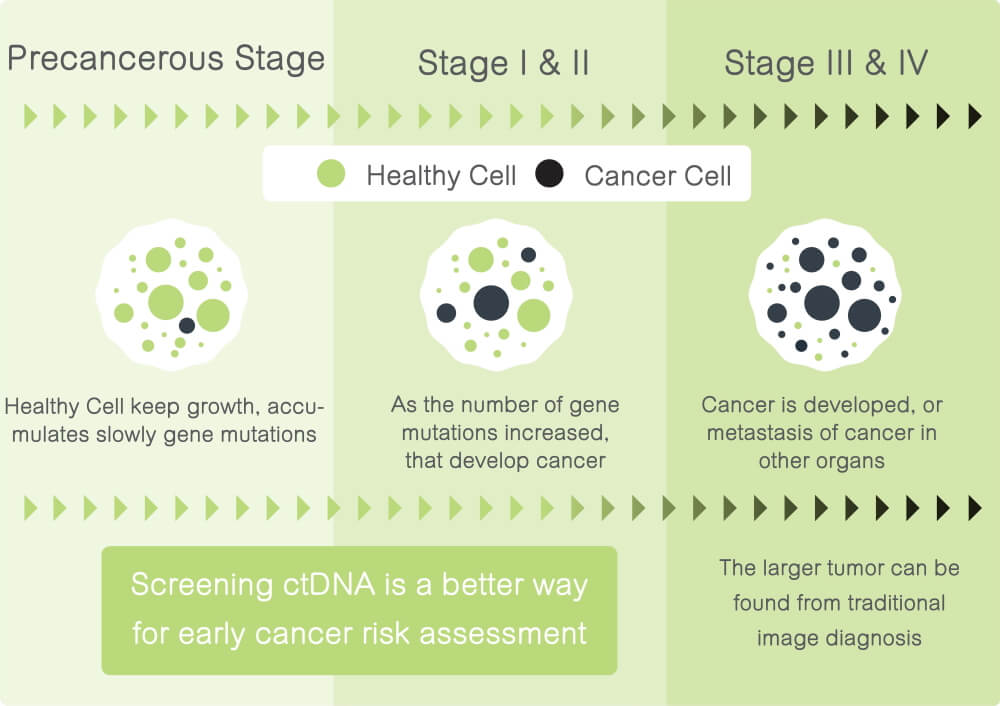How cancer starts?
| For a cancer to start, changes take place within the genes of a cell or a group of cells | |
| It can take many years for a cell to divide and accumulate enough mutations to form a tumor | |
| Cancer is the leading cause of death in Hong Kong and mainland China, and its incidence and mortality are increasing |
Before the age of 75:
| Almost 1 in 4 will attain cancer | |

|
| Almost 1 in 12 will die cancer | |

|
Over 50% cancer cases are diagnosed at late-stages of the diseases
| Over 34,000 people are diagnosed with cancer each year in Hong Kong | |
| Over 50% of cancer cases are diagnosed late | |
| Mirroring incidence trends, rates increased for cancers in younger individuals |

「Cancer Prophet」Earlier Detection, Earlier Treatment
| Lung cancer was the first leading cause of cancer deaths in Hong Kong | |
| Over 80% lung cancer cases were diagnosed at advanced stages | |
| The 5-year relative survival rates for early-stage cancers can be higher than 90%. For advanced-stage cancers, the rates drop to about 20% |

Screening ctDNA is a better way for early cancer risk assessment
| ctDNA is released from the tumor cell, which is dead or active, and then enters the blood. | |
| As ctDNA comes from tumor cells, this is a significant biomarker for early cancer risk assessment. | |
| For cancer risk assessment, we are screening the ctDNA, which has any gene mutations. |
MYGENIA® Circulating Tumor DNA (ctDNA)
Cancer Risk Assessment Evolved - OEC
Advantage:
| Interrogating 270 cancer-related genes in a single test | |
| Comprehensively covering 38 and 42 common cancer-related diseases in males and females respectively | |
| Unlike traditional hotspot-focused methods, the latest OEC detection technology interrogates all the coding regions of the target genes, providing unparalleled and comprehensive coverage of mutations in the 270 cancer-related genes (See the below photo) | |
| OEC detection technology covers more gene mutations related to cancer pathogenesis |
Suitable For:
| Unhealthy lifestyle: staying up late and sleep deprivation | |
| Overweight, lack of exercise | |
| Smoking, drinking alcohol and other unhealthy diet | |
| Staying in highly polluted or radiologically contaminated places | |
| Persons with non-communicable diseases or immunocompromised conditions | |
| Persons with family history of cancer |
Test Specifications
| Test Code | Methodology | Specimen Requirements | Turnaround Time |
|---|---|---|---|
| OEC | NGS (Next Generation Sequencing) | 20ml cfDNA Blood Tube (PAXgene) | 30 Working Days |





